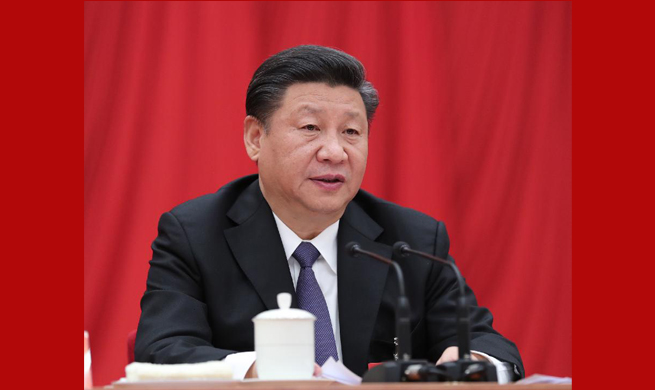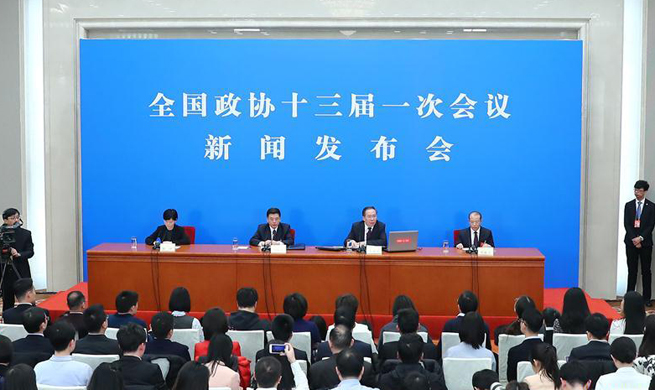WASHINGTON, March 2 (Xinhua) -- The International Monetary Fund (IMF) said on Friday that the import restrictions announced by the U.S. President Donald Trump would not only hurt the U.S., but also other economies.
"The import restrictions announced by the U.S. President are likely to cause damage not only outside the U.S., but also to the U.S. economy itself, including to its manufacturing and construction sectors, which are major users of aluminum and steel," said IMF spokesperson Gerry Rice in a statement on Friday.
The IMF expressed its concern that other countries might follow suit by using "national security" to justify broad-based import restrictions.
"We encourage the U.S and its trading partners to work constructively together to reduce trade barriers and to resolve trade disagreements without resort to such emergency measures," said the statement.
U.S. President Trump on Thursday announced that the U.S. planned to impose 25 percent of tariff on steel imports and 10 percent for aluminum, as these imports threaten the U.S. national security.
Following the announcement, U.S. business associations are expressing their strong opposition against the import restrictions, arguing that the high tariffs would disrupt current supply chains and increase production costs.
U.S. trade partners, including Canada and European Union, said that U.S. actions are unacceptable and they reserve the right to retaliate if the U.S. import restrictions hurt their workers at home countries.
Many other businesses and groups, as well as some administration officials and congressional Republicans, have expressed concern over Trump's plans for heavy tariffs, arguing that such action would hurt some American companies and consumers of steel and aluminum, and possibly the U.S. economy, and is certain to raise the ire of its trading partners.
Canada, the largest exporter of steel and aluminum to the United States, said Thursday that it viewed as "absolutely unacceptable" any trade limits on the Canadian metals.
"Should restrictions be imposed on Canadian steel and aluminum products, Canada will take responsive measures to defend its trade interests and workers," said Foreign Minister Chrystia Freeland.
Daniel Ikenson, a senior fellow at the Cato Institute, said on Thursday that trade restrictions could hurt U.S. producers by exposing them to competitions from foreign rivals with lower production costs capable of offering lower prices in the U.S. market.
U.S. actions would face legal challenge by other World Trade Organization members, and they would also invite other members to invoke national security to protect favored industries, said Ikenson.
European Union's trade chief Cecilia Malmstrom has said that EU would seek retaliation measures if Trump administration's 232 trade investigation brings damage for European steelmakers.

















